|
In This Issue:
The Great
Debate: Two English Majors Discuss a Classic Work of Literature
By Alex Nall and Leanna Waldron

For this
issue of the Printing Press both our writers decided to discuss a
work of literature that they did not agree on. The work is
Invisible Man by Ralph Ellison. In the
blue corner is Alex Nall, who liked the novel and in the red corner
is Leanna Waldron, who did not. LET THE DEBATE BEGIN!
One of my main complaints is with
the structure of the novel. I hated the big blocks of
pseudo stream-of-consciousness writing, since I'm not a
fan of stream-of-consciousness anyway, portions of
the novel just read really strangely to me. Even though
there was stuff happening, I still was bored to death
while I was reading it. I'd get lost in the middle of a
paragraph and had no idea what was going on, which was
extremely frustrating. It's not that I think these
novels should be easy to understand or that we should be
allowed to take them at face-value, but I'd like to at
least have a grasp of what is going on without having to
re-read passages over and over.
I think that the
use of stream-of-consciousness was well-used here. The
narrator is written as a lone wolf: a man who has no one
but himself to trust and rely on. I think it is only
right that Ellison used this kind of structure to
support the character's choices since he shifts mindset
and identities throughout the novel . Do you think that
the novel ends on a happy note or a pessimistic
viewpoint?
I think it ends on a positive note.
The narrator is continuing to discover himself through
the telling of his story. He realizes that he's been
exploited, that he would rather live out his life than
die at the hands of Ras and that his period of
hibernation is over and the time for action has come. I
think it's pretty safe to say that he's made some pretty
big changes from being the naive student to the hardened
man he is by the end of the novel, which I feel is a
positive change. To me, it's much better to know the
truth and work to change it than to be deluded and made
to chase your tail.
What did you think of the character
development in the novel?
I loved how the
character of the narrator changed as the book
progressed, showing that he never got a grip on his identity
because of the world he lived in. I also liked how
Ellison used some characters in only one scene, but
developed them strongly enough so that they became very
important to the theme of the novel. My examples would be Norton and
Emerson, Jr. You say that it's much better to know the
truth and work to change it, what truth do you think is
uncovered in Invisible Man?
I think there
are several, but the main one I think has to do with
ideologies. Obviously, we see quite a few throughout the
novel, from the smile-and-nod ideology of the narrator's
grandfather to the extreme violence and separatism of
Ras. Another example is the Brotherhood, which is
supposed to save the people, causing the narrator to get
sucked into it. He feels like he can truly help people
by working with the Brotherhood, but he ultimately
realizes that the Brotherhood was doing nothing but
limiting the people and betraying their freedom.
Ultimately, it seems that the narrator realizes that
life is too random and varied to be packaged up so
nicely with strict rules and ideologies. I liked what the novel was trying
to say, but it was really difficult for me to get past
the long, overly descriptive paragraphs and seemingly
random situations and encounters, like the very strange
chapter that discusses the clinic the narrator goes to
after the explosion at the paint factory. What did you
make of this or other strange or seemingly random
situations in the novel?
I wouldn't call
them random situations so much as they were "episodes".
Since the Narrator starts out in a hole at the beginning
of the novel, we as
readers have to see how he got down there. Much like
Odysseus, he goes on a journey to different environments
and a vast catalog of characters. I think that
Ellison makes a point to say that our identities never
really know where we are going because our values and
characteristics change when we are put into a new
environment. One last question. What was one thing you
liked about this novel?
One thing I
liked about Invisible Man
was the transformation of the narrator. I thought it was
very interesting to see how bitter he is in the prologue
and then change into someone new. I
liked that I knew how he was going to end up, but I
didn't know quite how he was going to get there.
Want to debate a novel with
someone? Go the
Survey Says section and see what books other English
majors didn't like, find them and let the debate begin!
'Tis
the Season to be Readin'
 By Alex
Nall By Alex
Nall
Want something new to read over Christmas break
that is not only a guaranteed good read but is also an award-winning
book as well? Well look no further. Here are a few selections that
were winners of various literary awards this year!
Just Kids by Patti Smith won the National Book Award for Best
Non-Fiction Book and recounts Smith’s early years in the New York
hipster scene in the late 60s. She writes extensively about her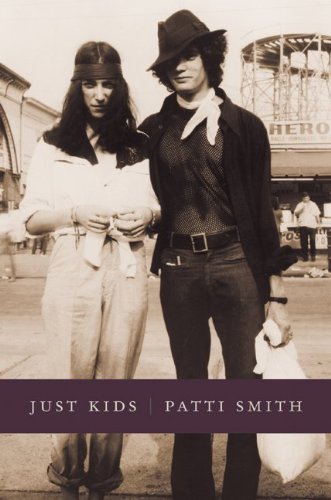 relationship with friend/lover and to-be-acclaimed photographer
Robert Mapplethorpe and the times they shared at Coney Island before
she became a famous rock-star and he the notorious figure in
photography. Tender, poetic and charged with honesty, Smith’s memoir
will let readers explore the New York scene through the eyes of two
great artists.
relationship with friend/lover and to-be-acclaimed photographer
Robert Mapplethorpe and the times they shared at Coney Island before
she became a famous rock-star and he the notorious figure in
photography. Tender, poetic and charged with honesty, Smith’s memoir
will let readers explore the New York scene through the eyes of two
great artists.
This year the Nobel Prize
went to Mario Vargas Llosa, a writer, historian and one-time
Presidential candidate of Peru—for his extensive work in
South-American literature and politics. Many of his books focus on
the politics in Peruvian government and crime. He has written about the works of Gabriel Garcia Marquez and Albert Camus and
his novel, The War of the End of the World was the winner of
the Ritz Paris Hemingway Award. His latest novel is The Bad Girl.
Llosa is a writer that is good for historical novel buffs and those
interested in Southern American politics throughout the past fifty
years.
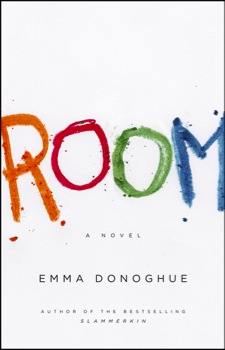 With the recent interest in autism and
child psychology, readers will be very interested in checking out
Emma Donoghue’s Room, short-listed for the Man Booker Prize.
The premise of the novel concerns a young mother and her
five-year-old son locked and forced to live in the 11 x 11 basement
room of their captor. What is fascinating about Donoghue’s book is
how she crafts her characters’ mindsets. While the mother
frantically tries to find a way out and establish normalcy for her
son, Jack, the boy himself seems to be content with his little
world. It is only until they break free from the room that their
lives become full of consequence and hazard.
With the recent interest in autism and
child psychology, readers will be very interested in checking out
Emma Donoghue’s Room, short-listed for the Man Booker Prize.
The premise of the novel concerns a young mother and her
five-year-old son locked and forced to live in the 11 x 11 basement
room of their captor. What is fascinating about Donoghue’s book is
how she crafts her characters’ mindsets. While the mother
frantically tries to find a way out and establish normalcy for her
son, Jack, the boy himself seems to be content with his little
world. It is only until they break free from the room that their
lives become full of consequence and hazard.
Autobiographies and Poetry by
Monmouth Students
By Alex Nall, Leanna
Waldron and Members of SULCI
In our English department, we have a lot of
talented writers but their talents often are not showcased. We do a
lot of great work in and outside of our classes and we felt it was
time to show some of the work English majors have been doing this
semester. Here are two excerpts from our featured writers'
autobiographies and a collection of poems from the Monmouth College
Poetry group, SULCI.
Excerpt from Autobiography
by
Leanna Waldron
It was my first funeral and, after being
hugged, kissed, pinched and passed from family member to family
member, most of whom I did not (and still don’t) know, I attached
myself to my mom as if my life depended on it. I was so tired of
hearing:
“How are
you doing, Sweetie?”
“Oh, my! What a big girl you are!"
“Do you like school?”
“Let’s see a big smile from you!”
When the service was over, my family and I
went to the casket. I was terrified by what I saw. It was my
grandma, but it wasn’t. Her eyes were closed and she had a somber
expression on her face. My grandma always had a smile ready and a
twinkle in her eye when she saw me or my three brothers—even when
she was so exhausted she couldn’t even sit up in her bed. My mom
allowed me to touch her and, when I put my hand on her face, it was
cold and hard as a brick where I remembered her skin being extremely
soft.
This was
not my happy, jokey, fun grandma. This was not the grandma that
fixed us macaroni and cheese with cream of mushroom soup in it to
make it extra creamy and let us eat on T.V. trays in the living
room. This was not the grandma that crocheted me a hot pink hat with
buttons all over it, Ninja Turtles for my older brothers and a
purple octopus for my little brother.
I drew back, scared suddenly. “Mommy,
there’s something wrong with her,” I said, burying my head in her
shoulder. It was a stupid statement. Of course there was something
wrong with her—she was dead. I knew what dead was, but this dead was
very different than waking up and finding your goldfish floating at
the top of the tank. This was a person.
Golden Boy
by
Marcus Bailey, Member of SULCI
I lay in the muck, sobbing in pain.
There is a copper taste in my mouth, mixed with
salt:
the bodily fluids that came from those demons of
hatred.
It was a sick joke to them, but an embarrassment
far beyond redemption for me.
How can I face them at school?
These warm tears run down my face,
as the heat escapes from my numb limbs.
I feel hopeless and lost in this small farm town.
The corn looks at me mockingly as it listens to me
weep.
No one will ever find me.
Good.
I should never have trusted them.
That is my fatal flaw:
a heart too caring and compassionate to see
reality,
blinded by those ideals drilled into my skull,
overfilling my mind and drowning my reason.
If only I would have known what they had planned.
It was like when dad caught me smoking,
and made me smoke every cigarette until I was
sick.
I feel a lump in my throat just like I did then.
The hard lump is of shame, as is the nausea.
Now here I lay beaten and blaming only myself.
Suddenly, I hear a car approaching as the sun
leaves me.
The headlights burn my bare back,
as darkness consumes my pounding chest and my
sweating face.
Not again.
A car door slams and footsteps thud toward me.
I try to get up and run, but my body fails me.
A cry of pain escapes me, revealing my hiding
spot.
The footsteps approach, as I close my eyes.
Don’t let the monsters come back and haunt
me…please.
Warm hands touch my arm, and wipe blood off my
face.
These hands turn me over, and warm eyes stare into
mine.
I
quiver under his touch,
what does
he want?
“It’s going to be okay” he mutters, reassuring my
fear.
Why him?
How
did he know?
He gives me some clothes, and soon I am in his
car.
“You can’t take me back” I beg.
“I’m not…just relax, everything will be ok” a lie
to my ears.
The heater warms my cold shell.
Things won’t be the same.
He gives me his varsity jacket to help;
I feel the letters of the school under my
fingertips.
His warm blue eyes stare into mine.
His muscular figure shows through that paper-thin
shirt.
He is shivering for me.
Why?
He gives me alcohol to help warm me.
The amber liquid is like fire down my throat.
It feels good, loosening the lump and relaxing my
body.
His lips quickly brush mine.
It came out of nowhere, it couldn’t be real.
Soft, warm lips that make me shiver again
in confusion, and in something else.
I pull away in a fright,
pressing my back against the cold glass.
What just happened?
“I’m sorry” he pleads to me.
He reaches for my shoulder to comfort me.
I start, but not from fright.
Suddenly, a rush of emotion fills me up.
They crash like a wave against my senses, clouding
them.
I feel warmth from them, or possibly from him.
It radiates like an autumn bonfire.
“How ‘bout you stay at my house…just for tonight?”
he asks.
I open my mouth, but no words flow.
He ignites the engine as a reply.
Soon I am wrapped in the arms of a warm golden boy
in a nest of a bed.
Sheets surround us like a cocoon,
changing the night into something unexpected.
Something good always comes from something bad.
Can this be real?
To Write You A Poem
by
Fannetta Jones, Member of SULCI
I just want to write
You a poem.
No pretense.
I want to wrap my words
Around you so tight that
You have no choice
But to breathe my essence.
I want to write you a poem
So deep that you'll still
Be swimming through its metaphors
For weeks.
No time for weak lines.
I want to write you a poem
Meant for a Queen.
I want to write how you bring out
The God in me.
I want to write similes
So sweetly that you still
Taste them on your tongue
Days later
Like corner store
Now'n'laters.
I want to write you into
Eternity.
I want our
children's children to read
Of your worth in their history books
So that they may know your true majesty.
I want to write you into my future.
I want to lay out our story so perfectly
That even Disney couldn't tarnish our ending.
I'm sick of reading predictable
Happily Ever Afters.
I want to write about our happy beginnings
Our Happy In-Betweens
And our Happy on goings that keep going and
going
Longer than any
funny little bunny could ever comprehend.
I want to write... You.
In all your wonder.
I want to write your ups and your downs.
Your glad days and your sad days.
I want to chronicle your life's tales into
Something more splendorous than Narnia.
I want to write your
Odyssey.
Follow you
through your tests, trials, and triumphs to show
Your strength.
And that no matter the ordeal
You still know how to find your way home.
Where the heart is.
Where I am and where I'll always be.
Waiting.
With pen in hand.
To write you a poem.
Excerpt from Autobiography
by
Alex Nall
The first book I ever wrote was called
Alex the Snake’s Birthday
Party. The eponymous snake was not a slithering creature that
scared people, but instead a first-grader's self-portrait, colored
bright green with a pair of blue pants and a red shirt on. The only
thing that distinguished him as a snake was the tail that popped out
of his jeans. He had feet and arms. If anything,
Alex the Snake was
really Alex the Serpent
Before God Cast Him Out of Eden.
The
book was about Alex’s birthday party. On the first page he woke up
and
jumped on top of his bed, excited for
his special day. On page five his mother helped him put up balloons
and
on the next page, they
baked a cake. The book ended with Alex at the dining room table
about to blow out his candles with all his friends sitting around
him, happy to be in his company. I read this book in front of my
first grade class on Show & Tell Day and was lauded with applause
and laughter. They loved it! The drawings were
awesome and neat.
The pictures were so pretty.
They wanted more! All I could think as I
received this praise was:
I wish
my story were real.
The only time I can remember
having an actual birthday party was in second grade. Ten of my
friends from school, my brother and I went to the coolest place in
Galesburg. It was called Circus Video. It was a video rental store
and also a playplace with what seemed like a thirty-foot
candy-colored jungle gym with thousands of rooms, some with ball
pits, air-filled bouncing rooms and others with padded mats to ram
your body into. It was a kid’s dream palace. There’s a Walgreens
there now.
If you made arrangements you
could have a birthday party there—a whole room to yourself with a tv
to watch your favorite cartoon and eat pizza and cake! I can taste
that pizza right now. I can honestly say that it is the only time I
felt amongst friends that cared about being near me and seeing me
happy (Actually, now that I think about it, Anthony Fredrickson
pushed me down in the jungle gym so that he could get to my birthday
cake before me. But he was a sheltered child… so I guess I shouldn’t
mull over it).
My other birthday parties were mostly
amongst relatives and a dinner of my choice. I didn’t live anywhere
near the other boys in my class. Everyone lived in Alexis or out in
the country. Sometimes I pedaled my bike out to see them but there
were many occasions when I couldn’t think of a reason why I would
want to see them. I was much happier with my rope. I wonder now how
people looked at me. A boy living amongst the open terrain of the
Midwest would rather spend his time after school with imaginary
characters rather than go out and get in trouble with the boys in
his class?
Survey Says!!!!

What
is one book that you either hate or cannot get through every time
you try to read it?
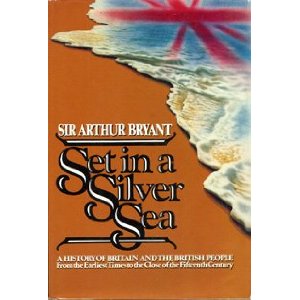
Set in
a Silver Sea by Sir Arthur Bryant. It
was a gift from a good friend's mother, and so I
feel obligated to read it. Every summer I pick
it up several times and always end up taking the
longest naps of my life.
-Ryan Bronaugh
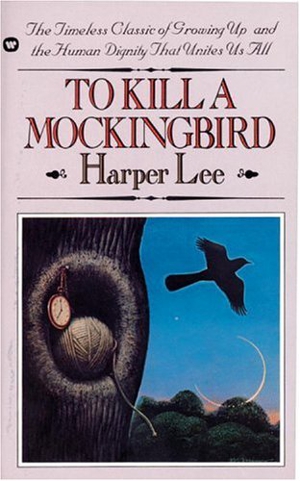 For some reason every time I've
tried to read To Kill a Mocking Bird, I only get a
few chapters in before I get distracted and give up. For some reason every time I've
tried to read To Kill a Mocking Bird, I only get a
few chapters in before I get distracted and give up.
- Ivy Bekker
The Lord of the Rings trilogy or Call of
the Wild by Jack London
-Jennell Oddo
Mysterious Island by Jules Verne
-Mary K. Grzenia
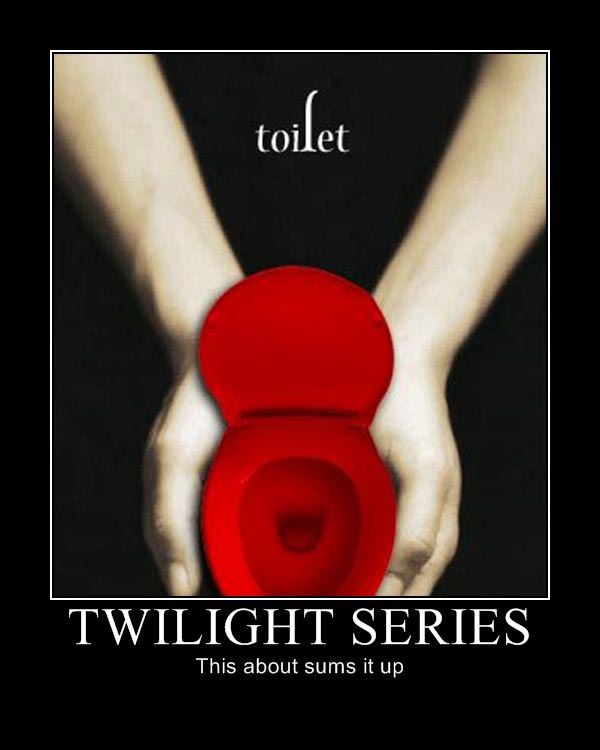 Twilight! I made it through the second one
but when I started the third I decided
that I needed to stop torturing myself. Twilight! I made it through the second one
but when I started the third I decided
that I needed to stop torturing myself.
-Carleen Maki
I'm sad to admit that I
actually read Twilight and really, really hated it.
I had high hopes for it because I absolutely love vampires, but the book was
just awful. The main characters were unlikeable and the novel itself was just
poorly written. I read the next two, hoping it would get better, but I had to
stop halfway through the final book because I couldn't take Meyers' writing
anymore. I'm not even sure how it got published in the first place and I
definitely don't understand why it's so popular when there are so many other
worthy YA authors who deserve the attention Meyers is getting.
-Leanna Waldron
 The
Castle of Otranto by Horace Walpole. That
was just painful. The
Castle of Otranto by Horace Walpole. That
was just painful.
- Fannetta Jones
I can never make it through a Michael Chabon book. I've tried both
The Adventures of Kavalier and Clay and
The Yiddish Policeman's Union, but I
have no idea what is happening in them. I think I need to take an
Intro to Jewish Lit.
-Alex Nall
 I
have tried multiple times to read Wuthering Heights, but I can never finish it
because the main characters are just so detestable to me. Heathcliff is brooding
and arrogant. Catherine is self-absorbed. The whole romance just made me want to
yell at the characters to stop being so dramatic and whiny and move on with
their lives. Perhaps I just don't have patience for dramatic romances; I did
hate The Great Gatsby as well. I
have tried multiple times to read Wuthering Heights, but I can never finish it
because the main characters are just so detestable to me. Heathcliff is brooding
and arrogant. Catherine is self-absorbed. The whole romance just made me want to
yell at the characters to stop being so dramatic and whiny and move on with
their lives. Perhaps I just don't have patience for dramatic romances; I did
hate The Great Gatsby as well.
-Katie
Struck
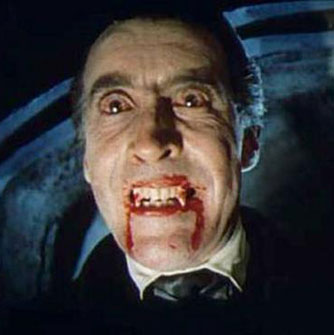 I don't hate it, but I can
never get myself to finish Dracula by Bram Stoker. It just is so
boring I fall asleep before the story ever really begins. I don't hate it, but I can
never get myself to finish Dracula by Bram Stoker. It just is so
boring I fall asleep before the story ever really begins.
-Amanda
Neubauer
The Hobbit by J.R.R.
Tolkein -Katie Moore
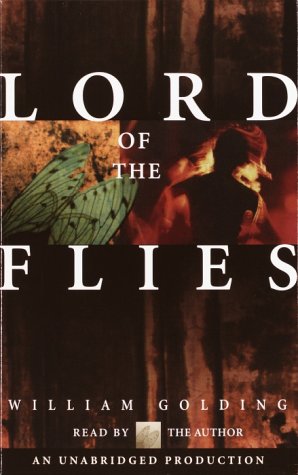 Lord of the Flies
by William Golding. Hands down. It was
well-written, but I hated the story so much, I wished I
could have unread it. Lord of the Flies
by William Golding. Hands down. It was
well-written, but I hated the story so much, I wished I
could have unread it.
-Emily McClay
|


 By Alex
Nall
By Alex
Nall relationship with friend/lover and to-be-acclaimed photographer
Robert Mapplethorpe and the times they shared at Coney Island before
she became a famous rock-star and he the notorious figure in
photography. Tender, poetic and charged with honesty, Smith’s memoir
will let readers explore the New York scene through the eyes of two
great artists.
relationship with friend/lover and to-be-acclaimed photographer
Robert Mapplethorpe and the times they shared at Coney Island before
she became a famous rock-star and he the notorious figure in
photography. Tender, poetic and charged with honesty, Smith’s memoir
will let readers explore the New York scene through the eyes of two
great artists.


 For some reason every time I've
tried to read
For some reason every time I've
tried to read  T
T The
Castle of Otranto
The
Castle of Otranto
 I don't hate it, but I can
never get myself to finish
I don't hate it, but I can
never get myself to finish  Lord of the Flies
Lord of the Flies